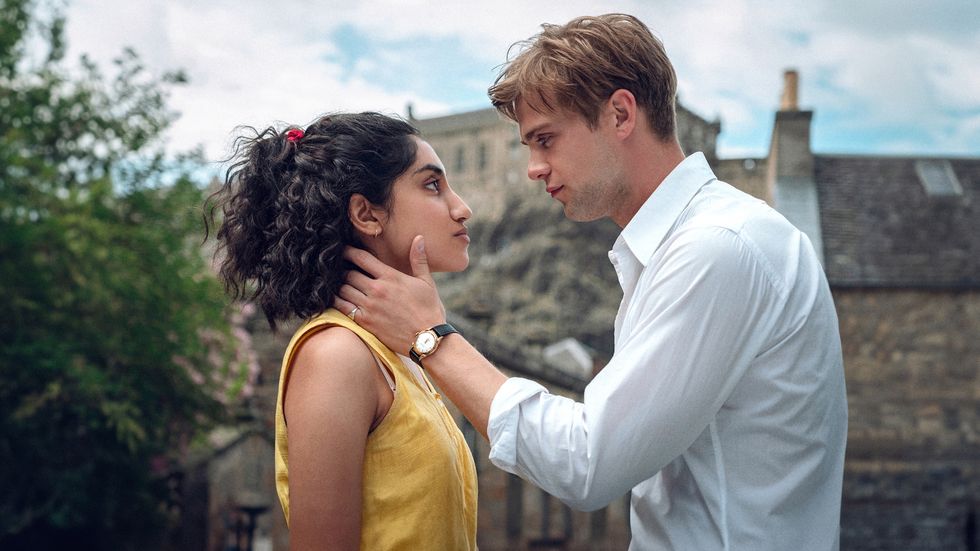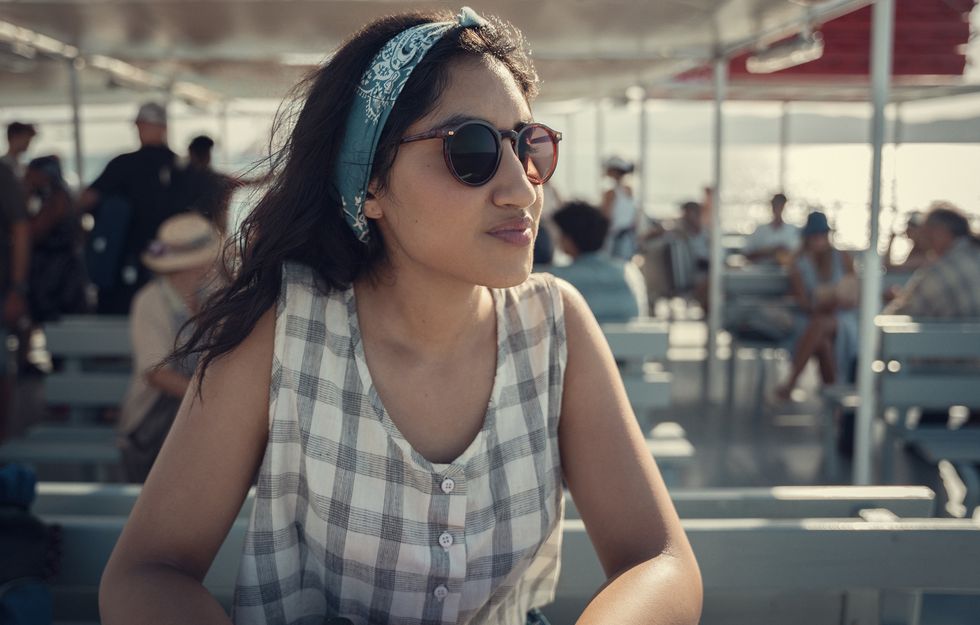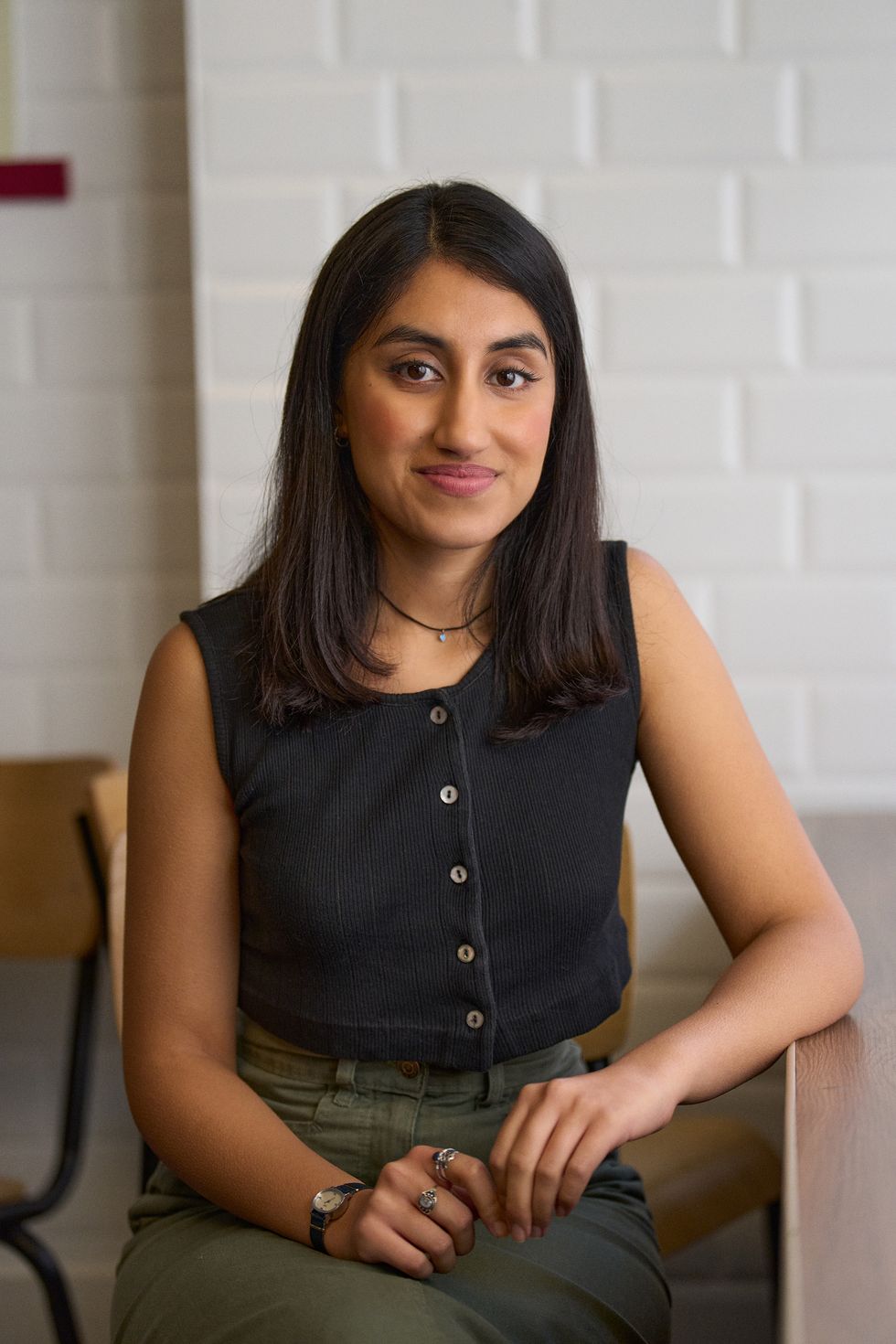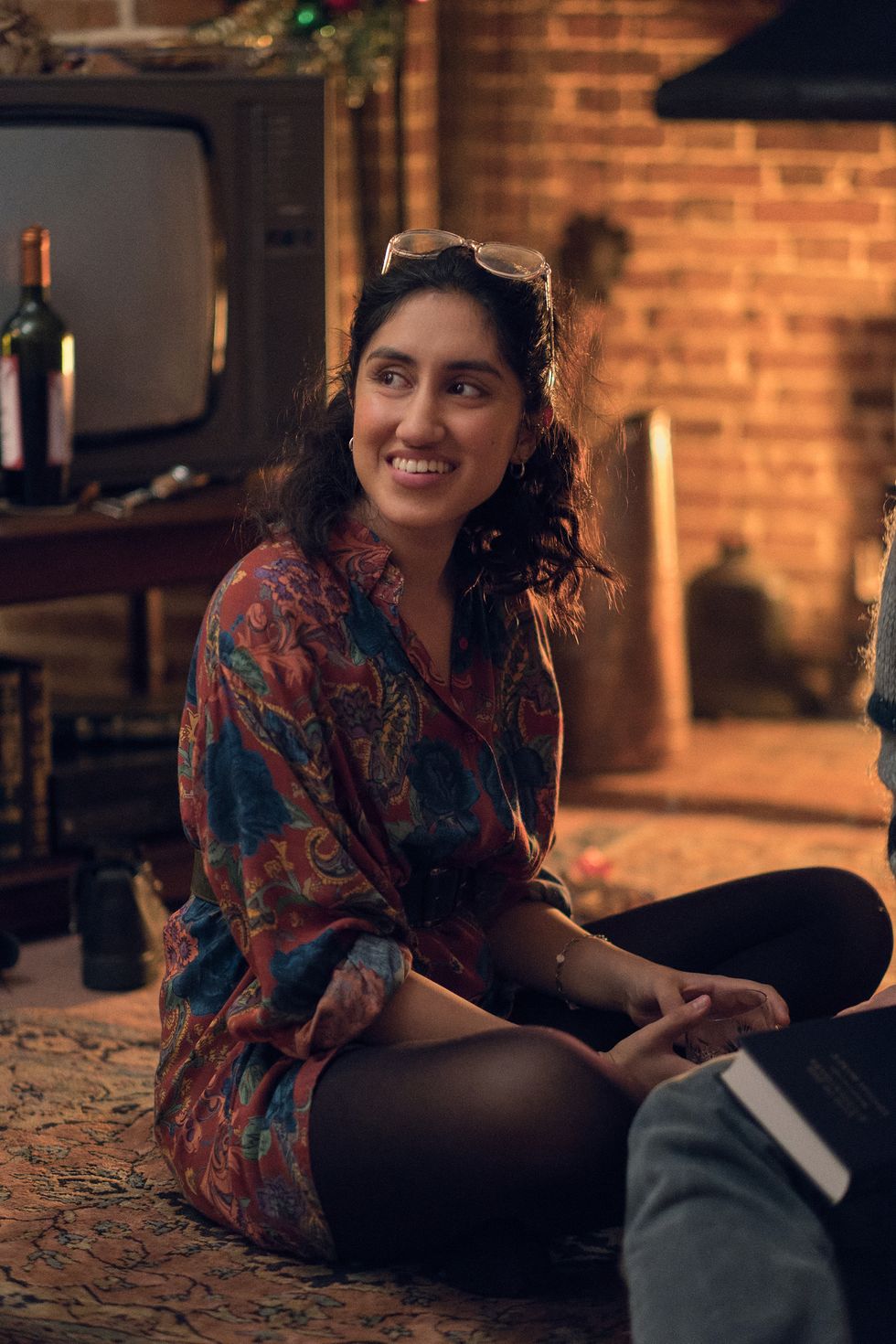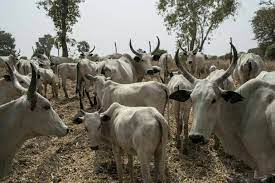Ambika Mod Didn’t See Herself as a Romantic Lead. Then One Day Happened.
Ambika Mod almost didn’t audition for the role of Emma Morley in One Day, the Netflix series adaptation of David Nicholls’ beloved romance novel.
In fairness, Mod, a self-described introvert, had just found herself unwittingly at the center of an important cultural conversation about mental health in the United Kingdom at the time. Her first major TV project, the medical dramedy This Is Going to Hurt, based on Adam Kay’s experiences of working as a junior doctor in the country’s beleaguered National Health Service, had debuted weeks earlier to widespread critical acclaim, and her turn as the tragically overworked Shruti Acharya sparked widespread debate about the lack of emotional support for frontline workers.
Mod, too, was feeling emotionally overwhelmed. So, when she received a request to put herself on tape for the latest adaptation of One Day, a book that she has loved since she was about 13 years old, Mod turned down the audition multiple times, without even reading the script or seeing who was attached to the project. She would later come to regret it.
“I kept convincing myself that I wasn’t the right person for the part, and to even go up for it would just be a waste of everyone’s time,” Mod, who is of Indian descent, tells ELLE.com on a recent video call from her home in London. “I think part of the reason why I just didn’t see myself playing that part was because insidiously and implicitly, that’s a message that I’ve been fed my entire life—that people who look like me aren’t romantic leads, that people who look like me aren’t the people who the male romantic lead will fall in love with.”
It wasn’t until Mod was lying in bed one night that she realized she had made a terrible mistake. Thankfully, the show’s casting director, Rachel Sheridan, had been hounding Mod’s agents for over a month, attempting to keep her in the mix. Mod learned a Yorkshire accent in two days and sent the tape off at the 11th hour—and the rest is history.
“If there was one thing that made me want to adapt this book more than any other, it’s my utter obsession with the character of Emma,” Nicole Taylor, the lead writer and executive producer of the new One Day adaptation, says in an email. “I identify with her so much—I don’t know a British woman who doesn’t!—and I so badly wanted to find an Emma who was as complex and awkward and intense and funny and sweet and nerdy and wonderful as the one in the book and the one in my mind. And then in walked Ambika! It was instantly obvious to everyone that she was the one.”
Now streaming on Netflix, each of the 14 half-hour episodes checks in with Mod’s Emma and Leo Woodall’s Dexter Mayhew on the same day (July 15) from 1988 to 2007. After meeting on the night of their university graduation, the two unexpected best friends weave in and out of each other’s lives—sometimes for years at a time. These little vignettes are gradually woven together to form a picture of Dexter and Emma’s love story, which comes to a tragic end just as they begin to find their footing as a married couple.
“One Day was just by far and away the biggest and best opportunity to follow and improve on what I had just done,” Mod says. “As a young woman of color, there’s just not that many roles out there. I was feeling quite disappointed by a lot of things I was auditioning for. I also just remembered how much I fucking loved the book and how much it meant to me when I was young, how much the story stuck with me. I’m hesitant to call it a romance or a love story, but I think it’s one of the best love stories out there.”
In conversation, Mod is charming and self-deprecating, exuding many of the same qualities that make her portrayal of Emma stand out in today’s crowded TV landscape. Here, the British actress reflects on her favorite changes from book to screen, her “creative chemistry” with Woodall, and the next step in the evolution of South Asian representation.
One of the most profound parts of Emma and Dexter’s love story—and, really, any epic love story for that matter—is their ability to be vulnerable with each other in a way that they can’t be with anyone else. Why do you think they continue to be drawn to each other over the years?
What’s really lovely about their relationship is Emma is quite cynical and brittle and takes the piss out of him a lot, and he is so soft with her and takes it in his stride. Over time, her edge is softened because of him. No one has ever treated Dexter or called Dexter out in the way that Emma does. I think she’s the catalyst for the better person that he becomes, and she loves him as a person. She’s not impressed by his looks, his money, his fame, [or] his career, so there’s something really inherently meaningful about their relationship in terms of each other’s characters and morals just appealing to the other.
Watching the first and last episodes together, I was struck by how the writers managed to bookend this relationship in a really poignant but hopeful way.
In the book, you don’t see how they meet. You just meet them straight in the bedroom, and it’s described that they met at a party. But in the series, we see that first connection. I think Dexter approaches her in the way that he might approach any other woman that he’s probably had a one-night stand with. That’s sort of his modus operandi and it works for him, and then he’s met with Emma, who just isn’t making it easy for him. She wants to get to know him, and she doesn’t just want to be another girl that he sleeps with, whether he stays in her life or not.
What I love about that first episode is … it’s not this cosmic union of two people. It’s not like [their] eyes meet across a room. It’s quite stilted and awkward, and there are lots of missed opportunities. It’s not immediately obvious how these two people fit together, but they just somehow do. As you’ll see in the last episode, she is the one who had agency in forming this friendship. She said, “This doesn’t have to be weird. We can be friends.” I think seeing that at the end really puts their whole relationship into a new lens.
How did you work with Leo to develop the sense of intimacy between your characters over the years?
I think what was helpful to us was that not only was the writing amazing and definitely marked the progression of the characters in a really comprehensive way, but we also shot largely chronologically, so we go from seeing Emma and Dexter meet for the first time to them being married. It was sort of similar to me and Leo starting to work together, starting Emma and Dexter’s relationship, and then being eight months in and then playing a married couple. I think it was just an organic progression. I do think mine and Leo’s dynamic is very Emma-and-Dexter in a way; we are both very similar to our characters in a lot of ways.
Given that this show takes the innovative approach of checking in with the characters on the same day across two decades, how did you find your own way to mark the progression of Emma over time? Did you calibrate your performance differently when she was younger compared to when she was older?
I didn’t really think about age so much as I thought about Emma’s relationship with herself, because that’s the most definitive change that she goes through, especially as she gets older and experiences rejection and failure professionally and personally. She becomes more confident and comfortable in her own skin; she becomes a much more fully-realized version of herself. I think that is very truthful when it comes to aging and growing older. I don’t know a single person who doesn’t feel more confident in their own skin in their 30s than they do in their 20s, so that is more what I was cognizant of rather than age, because I think age is really not particularly correlated with maturity.
What were your favorite years to shoot?
I can’t decide if it’s episode 3 or episode 5—probably both. But [I loved] that first date with [Emma’s ex] Ian [played by Jonny Weldon] and the initiation of that whole relationship, which is so significant to Emma and her life. When you first meet Ian, you’re like, “Oh, we’ll never see this guy again.” When he pops up again on their first date, and you’re like, “This is never going to work,” and then it does work. He really loves her, and I think at some point she really loved him, so I think that’s a really significant moment for Emma.
Two episodes that I’m proudest of in terms of my performance and my understanding of the character are episodes 7 and 8—the dinner with Dexter when they fall out, and then when she’s having the affair with this headmaster and the fallout with Ian. Episode 7 is my favorite chapter in the book. It’s one of the best written chapters of prose I’ve ever read in my life, because it’s constantly them in their heads berating themselves, and the constant battle between what we want to say and what we feel versus what we actually end up doing and how we actually end up behaving. I remember feeling a lot of pressure for that episode in particular and feeling such a shift in their relationship. It’s the midway point of the whole series, and it felt very important that we get it right. But I’m very proud of it.
I don’t think it’s lost on either of us that you, as a South Asian woman, have been able to redefine the character of Emma for a new generation. How did you and the writers want to approach any conversations about Emma’s ethnicity, and what has it meant to you to bring that kind of representation on a global scale?
I think what was really good about this show—and what is still a rarity—is that they auditioned actors regardless of their ethnicity or race. I don’t think that’s right for Dexter just because of his story and the privilege that he comes from. But for Emma, it took me a really long time—and I’m talking well into filming—for me to see what the creative team saw not just in me, but in the relationship that me and Leo were conveying on screen.
What I really specifically love about the series is that my race is not a talking point. We didn’t ignore it. We discussed it in advance, and we came up with a backstory for our version of Emma, and it doesn’t show itself explicitly in the writing, but it is just small ways in which you can make her ethnicity and her heritage matter. But [One Day] is not about her experiences as a young brown woman in the ’80s and ’90s; it’s about her relationship with her best friend and growing up and growing older.
It’s not lost on me what a special and privileged position I’m in, and I can only hope that casting goes in this same way. Now that I’ve had this experience, I’m definitely going to fight for equal, if not better, opportunities. I’m not going to continue to be sidelined. I think there’s an extent to which this industry does tell marginalized actors especially to stay in their lane with the auditions they get and the things that you are seen for. My eyes are much more open to that now, and I won’t be entertaining it as much.
What do you think is still getting lost in the larger conversation about diversity and inclusion for South Asians?
I grew up watching Bollywood movies, and Bollywood stars are objectively some of the most beautiful, multi-talented people in the world. And it wasn’t like, “Oh, brown people can’t do this. Brown people aren’t amazing entertainers and performers.” It was just that those people weren’t valued here in Western television.
We are seeing improvements, but what I’m seeing is a lot of the marginalized people who are having to do the emotional labor. In rooms where it’s mostly white people, I doubt they’re talking about how we can push this industry forward and open up opportunities. I think it’s in those spaces that these conversations matter the most. At the end of the day, you only have so much control over this industry and the rooms that you’re in, the people that you’re with, and the work that comes to you. So it’s about people who it doesn’t directly affect also seeing the significance and the relevance of having those conversations. I hope that is a change that we see really soon because I think that will speed things up massively.
You began your career in comedy, but you’ve ironically become known more as a dramatic actress, following This Is Going to Hurt and now One Day. What kinds of stories are you looking to tell going forward? Are you planning to return to more of your roots?
I’ve been doing live comedy writing, performing my own stuff since I was 18, 19, and that was very much what I was pursuing until This is Going to Hurt. Whilst this stuff I’ve done in tele has largely been dramatic, I do think the reason I got those parts is because of my comedy training. I think that is quite a specific skill that perhaps people I was going up against might not have had, so I do think it’s massively helped me.
Going forward, I would love to do an out-and-out comedy—something really chaotic, off-the-wall, and weird—and just be in a room of amazing comedy performers. When I think about doing the next thing, that is something that really scares me, because I think comedy performers are the most skilled, the best actors in the world. My favorite actors come from comedy.
I don’t know if something will come along, but if not, I would love to write a really good ensemble piece. But I’m definitely thinking about my roots a bit more at the moment and how I can marry the two things more and maybe write something for the screen. But I’m in no rush, and I’m very open to what comes to me this year. I’m just very intrigued by what will come up after One Day is out and what people will think of it.
This interview has been edited and condensed.


